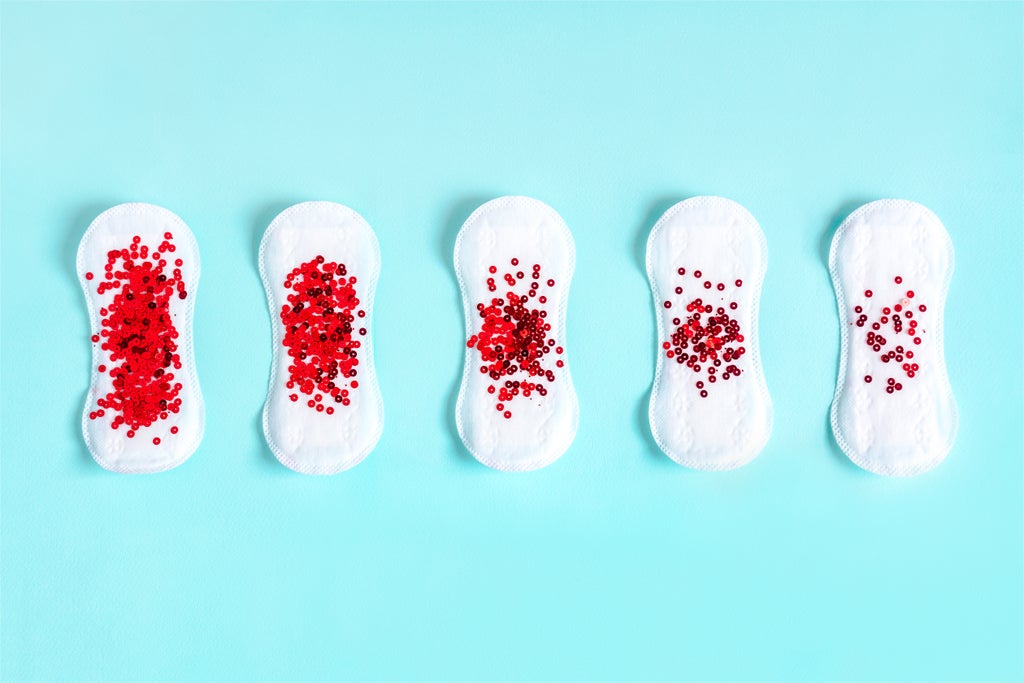Opinion: We should be talking to our girls about periods earlier

Period. Time of the month. Menses. Whatever you call it, it’s a fact of life and, for many of us, unavoidable. Why does it carry such shame and embarrassment? Why are we encouraged to conceal it?
Even now, despite being adults and amid so much talk of female empowerment, discussing periods is still embarrassing for a lot of people. Brands have even come up with whole campaigns to make tampons look like sweets, rather than the blood-soaking mechanism they actually are, in order to spare us and the unassuming male across the train aisle the humiliation when it falls out of our bag.
Is this shame linked to the time and way in which we learn about periods? If so, the time has come to change things.
I was eight years old when I got my menarche (first period). I’d grown a lot that summer and started wearing glasses so, with two decades worth of retrospect, it now seems obvious this may have been coming – but no one told me what to expect. Instead, I was shocked by bloody knickers in the loo at school. I wondered if I was dying.
Once the family doctor confirmed I was healthy, my education began with a GCSE textbook which included drawings of grown men and women with hair in all the wrong places, and my 10-year-old sister who was yet to have her period instructed to teach me.
Then came the dreaded year 5 all-girls 30 minutes of confusion. You might recall being shown a video of what I remember being a middle-aged woman talking about – but not quite explaining – periods, and encouraging us to abstain from sex. At 10 years old.
But periods aren’t solely about sex or having babies. Not everyone has a period every month. Not everyone has period pains. Not everyone with a period wants or is able to have children.
There’s so much about the menstrual cycle we’re taught incorrectly, if at all, and so we end up raising generations with a stigma and discomfort about a part of life that’s fundamental to our existence.
This creates a cycle of failings, whereby girls grow up embarrassed, ashamed or unable to speak about periods due to a lack of knowledge. These girls become adults who don’t understand their bodies.
IPHE, an organisation dedicated to improving health standards, highlights how late schools are leaving discussions about puberty. “A survey of young people suggests that nearly a quarter (24 per cent) of girls start having periods before the subject is covered in sex and relationships education classes at school. Almost 15 per cent of young people said they were taught nothing at school about menstruation.”
Parents agree something’s amiss, too. Deej, 28, has already started talking to her almost 5-year-old about periods. She says: “My daughter walked in on me changing my tampon; she freaked out because of the blood and was convinced I was dying.
“I had to explain it. Now she helps me grab pads or tampons when I need them and she understands that I’m sometimes in pain and she’s very helpful and understanding.”
Other parents in similar situations might have chosen to hide what was going on, but Deej didn’t. She explained: “I understand parents have a lot of anxiety and apprehension. I’m just of the belief that things that are natural parts of human existence should be approached with kindness and normalcy and not to create fear or stigma.”
To keep up to speed with all the latest opinions and comment, sign up to our free weekly Voices Dispatches newsletter by clicking here
Meanwhile, Altine, whose 10-year-old daughter recently started asking questions after a classmate started her period and a “funny bin” appeared in the school toilets with no explanation said: “If I could go back, I’d have told her a while ago so she knows it’s expected and normal rather than a big secret.
“It’s nature. In addition to understanding what to expect, they know what to avoid when making decisions when it comes to sex because they know about ovulation, for example.”
Like Deej, Altine and the folks at IPHE, I wonder if explaining to our girls earlier would be arming them by giving them the knowledge they need to feel comfortable in their bodies, prepared for what’s to come and wise enough to make strong decisions.
As one of the most natural things to happen to humans and mammals alike, surely we should discuss it as openly and freely as we do when talking about brushing our teeth, learning to drive or boiling an egg.
For as long as humans have existed, periods have been the way to work out if and when a new life might be coming into the world. It is, no matter which way you look at it, a fact of life. Whether it’s coming from parents or schools, we should not only be talking about periods to our girls earlier, but we should be doing so with pride.
Share this news on your Fb,Twitter and Whatsapp
Times News Network:Latest News Headlines
Times News Network||Health||New York||USA News||Technology||World News